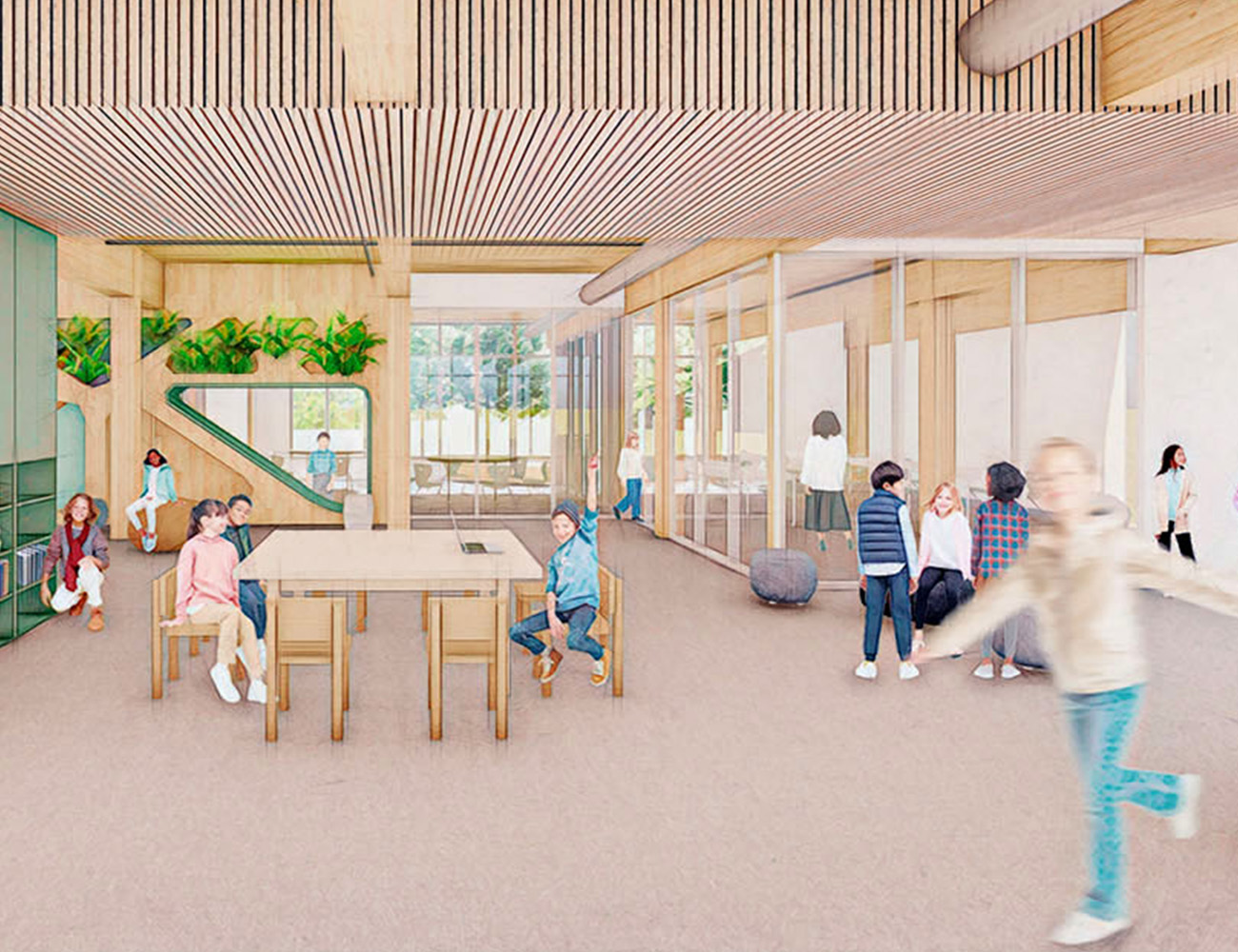
Location:
A4LE Washington Chapter Conference
Wenatchee, WA
Speaker:
JoAnn Wilcox, Rachel Himes
Date & Time:
06.07.2022 | 3:30 pm–4:30 pm
Student engagement is essential to positively impact education. Research on the biophilic influences of wood in interior environments has proven that connection to natural materials increases productivity, reduces stress, and improves overall well-being—all core tenets behind positive student engagement.
Join Mithun principal JoAnn Wilcox and associate Rachel Himes for “Mass Timber Schools: Building for Wellness” to explore what current research is revealing about mass timber’s benefits, including biophilic responses, support of student learning and resilience to stress, cost performance, schedule efficiency and embodied carbon reduction. This session will explore two new research studies that demonstrate improved learning by maximizing the physiological and psychological benefits of biophilia in K-12 schools.
Well-designed modern schools maximize adaptability, providing agile learning spaces that accommodate a variety of evolving learning models and teaching pedagogies over time. The Mithun R+D study “Building Better Schools” expands current understanding of the links between learning space design and student engagement, excitement, focus and stress. The team took an iterative approach driven by an optimized three-ply mass timber structural grid and sectional framework that balances efficient timber fiber volumes with the need for agile spaces. The results demonstrate that mass timber spaces can be cost competitive for schools when compared to a steel-framed baseline—providing warm, well-daylit interiors with exposed mass timber columns, beams, ceilings and walls that invoke biophilic responses and significantly reduce embodied carbon impacts.
Co-presenting with JoAnn and Rachel is Noor Awad, research fellow with the University of Washington Applied Research Consortium (ARC), who will share findings from a second study that focuses on mass timber’s ability to support children’s development, curriculum, learning outcomes, long term student success and student resiliency. “School as Living Laboratory” makes the claim that elementary schools should use design strategies informed by concepts in biophilia, with a focus on mass timber, to intentionally address the health and wellbeing of students as well as learning outcomes. Through secondary sources and surveys to learners from five schools that utilize mass timber in their existing design, this research helps draw connections between mass timber and benefits to student’s ability to learn and resilience during stress events.
Date Posted: 06.07.2022